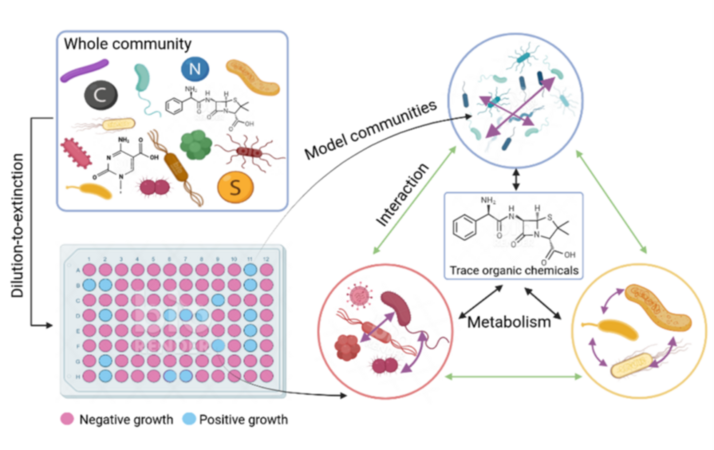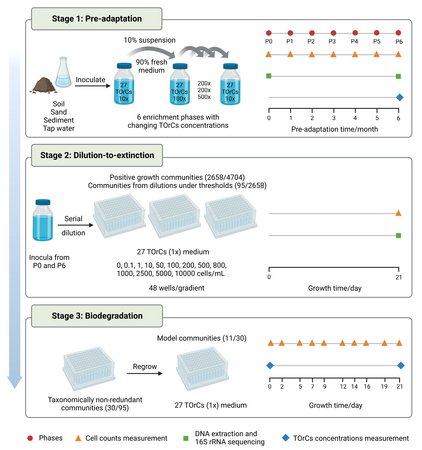ModCom - Establishment of microbial model communities capable of removing trace organic chemicals for biotransformation mechanisms research
Removal of trace organic chemicals (TOrCs) in aquatic environments has been intensively studied. Some members of natural microbial communities play a vital role in transforming chemical contaminants, however, complex microbial interactions impede us from gaining adequate understanding of TOrC biotransformation mechanisms. To simplify, in this study, we propose a strategy of establishing reduced-richness model communities capable of removing diverse TOrCs via pre-adaptation and dilution-to-extinction.
Microbial communities were adapted from tap water, soil, sand, sediment deep and sediment surface to changing concentrations of 27 TOrCs mixture. After adaptation, the communities were further diluted to reduce diversity into 96 deep well plates for high-throughput cultivation. After characterizing microbial structure and TOrC removal performance, thirty taxonomically non-redundant model communities with different removal abilities were obtained. The pre-adaptation process was found to reduce the microbial richness but to increase the evenness and phylogenetic diversity of resulting model communities. Moreover, phylogenetic diversity showed a positive effect on the number of TOrCs that can be transformed simultaneously. Pre-adaptation also improved the overall TOrC removal rates, which was found to be positively correlated with the growth rates of model communities.
This is the first study that investigated a wide range of TOrC biotransformation based on different model communities derived from varying natural microbial systems. This study provides a standardized workflow of establishing model communities for different metabolic purposes with changeable inoculum and substrates. The obtained model communities can be further used to find the driving agents of TOrC biotransformation at the enzyme/gene level.


|
| |
| Project leader | Dr. Christian Wurzbacher |
| Responsible for the project | |
| Cooperation partner | Prof. Sarahi L. Garcia, Stockholm University |
| Funding | TUM Junior Fellowship China Scholarship Council |

